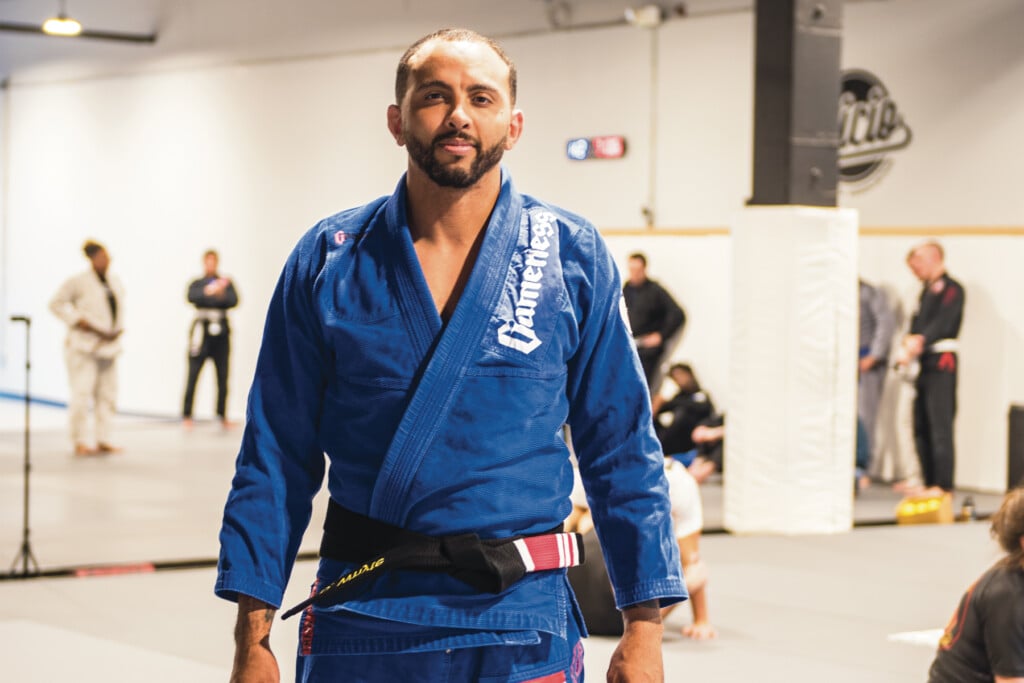Forever Learners
Designing business around community-based learning

It was Gandhi who said, “Live as if you were to die tomorrow; learn as if you were to live forever,” which is the philosophy of living a meaningful life of continuous learning. Today, people proudly brandish this quote on coffee mugs, T-shirts, and other memorabilia.
Business owners take the philosophy to heart, staking their livelihoods on finding communities of like-minded people who pursue learning as a lifestyle. The success or failure of a venture dependent upon selling adult-learning as a product depends on many variables.
Trends in entertainment and on social media are important factors in testing the viability of selling a hobby. Awareness and advertising also play a crucial role, but perhaps one of the leading factors is market fit.
For example, the dulcimer is an instrument from the medieval age that is not a typical conversation starter in modern times, so selling classes on learning to play one would be a difficult market.
Still, centering business strategies around adult learners, even in niche markets, can be lucrative. Many titans of industry exist on platforms designed to capitalize on upskilling adults in the workforce. Coursera, Udemy, and LinkedIn offer courses and certifications to users on their platforms, tapping into the market of forever learners; however, education goes beyond certifications in technical skills.
There is a growing demand from high performers seeking self-actualization. Maslow’s Hierarchy of Needs asserts that when basic needs are met, people with the time and freedom will seek fulfillment through transformation. After finding meaning through mastery of a skill, the next level is to share this purpose with others.
“To teach is to learn twice,” is a quote attributed to Joseph Joubert, a leading French writer, known largely for his aphoristic style.
The entrepreneurially minded take this lesson and merge their passions with profits, opening a market to these forever learners.
Martial Arts
According to Gymdesk, the average martial arts school earns roughly $115,000 per year, but the most successful schools can earn much higher depending on location, success of the lead instructor in the ring, and population density. Elite MMA schools, pioneered by professional fighters, can earn significantly higher than those without endorsements or certifications of established arenas.
Gracie University, which offers licensing and instruction to other trainers, generates $3.5 million per year. The Gracie family is largely responsible for pioneering BJJ (Brazilian Jiu Jitsu) in the U.S. with the founding of the UFC (Ultimate Fighting Championship).
For Dylan Whyte, owner of Positive Balance BJJ in Tallahassee, the focus of his school is to build a community rather than seek higher profits. Whyte does not force contracts on his members. There’s a standard sports waiver to try a class, but Whyte does not bill new students until they’ve been there for a few weeks.
Though Whyte admits that he has to keep the lights on, he makes a comfortable living without squeezing every possible dime out of his students. He offers equipment but will happily show anyone how to find gear and uniform cheaper online. Whyte even encourages his students to branch out to train with other martial artists, such as Train Fight Win, to learn striking techniques not taught at Positive Balance BJJ.
“I want to make this a community. People think ‘jiu jitsu’ … they must be enemies,” Whyte says, but that’s not the case. “Not a lot of people enjoy this type of hobby, right? So, we should probably all be cool, and it benefits the whole.”
Training is not just about fighting and self-defense.
“There’s a balance to it. [BJJ] helps people and improves their quality of life,” according to Whyte. “Whether it’s the jiu jitsu aspect or maybe their job might suck, you know? And they just want to be around good people.”
Meta-analysis of scientific studies shows a positive effect from training on reducing anxiety and depression, as well as increasing self-esteem and confidence, especially among women. Additionally, training in martial arts can improve balance, musculoskeletal health, cardiovascular fitness, and cognition, regardless of age or gender.
Positive Balance BJJ has recently expanded to a larger space to accommodate the growing school. When asked about how he built his success, Whyte says, “Honestly, it is mostly patience and listening,” adding that he gets to know every student, meeting their needs as individuals.
“I train a 5-year-old differently than I do a 40-year-old mom, who’s working on confidence, going through a divorce,” Whyte says, explaining that he tries to cater to each student’s needs: “Just care about them, and it works out.”
Despite the type of offerings, cooking, artistry, or martial arts, successful business owners always listen to the needs of their communities. Though the approach may look different in an MMA (mixed martial arts) gym than it does in a cooking class, owners willing to adapt to the needs of their customers are far more likely to succeed.
Lifelong High Performer
Whyte, who also played soccer at a high level, signed on to play for Southern Polytechnic State University after high school. While living in Atlanta, Georgia, he began training in BJJ with Rubens Charles Maciel—known as Cobrinha, meaning “little snake,” who is regarded as one of the most accomplished BJJ athletes of all time. Cobrinha was the first to complete the Super Grand Slam, winning all major World BJJ championships in 2017.
Training with Cobrinha was a pivotal time in Whyte’s life, leading him to win bronze in the middleweight division as a blue belt at the World IBJJF No-Gi (International Brazilian Jiu-Jitsu Federation) Championship in 2013. This success altered Whyte’s trajectory. He left college and moved to Orlando to train with another great, Bruno Malfacine, who is a 10-time IBJJF Black Belt World Champion and inductee into the IBJJF Hall of Fame.
Kitchen
Cooking classes will produce a revenue stream of approximately $98.9 billion this year, according to peekPRO, with the majority of those in attendance among young adults, aged 18-30. Demand has increased in recent years, likely influenced by COVID-19, when many people opted for home cooking rather than eating out. FinModelsLab claims a successful cooking school can generate an annual revenue of $200,000 to $1 million, with variations due to location, competition, and reputation.
Browns Kitchen is a retail cookware store that offers cooking essentials to aspiring chefs. The store originally supplied commercial equipment as well but now exclusively serves the home market. Brentley Dumas reluctantly took over the store after her parents purchased the space in 2006.
“At first,” says Dumas, “I wasn’t sure what I’d do with a kitchen store.”
An interior designer by training and strategist by nature, Dumas does not consider herself much of a chef. Though she cooks out of necessity, Dumas admits, “I would say my husband does most of the cooking.”
Dumas is passionate about the business side of her store and finds satisfaction “… creating a space for others to enjoy their passion for cooking. I love seeing the joy on people’s faces when they walk into the store for the first time or join their very first cooking class. Even better is watching those same faces return again and again.”
A self-described “workaholic,” Dumas explains, “I’m always looking for ways to improve both the store and the overall customer experience.” Even on vacation, she assesses and analyzes new trends in cooking to anticipate the demands.
Dumas believes constant evaluation is necessary in today’s market. To compete with the big-box retailers, “We focus on quality, personalized service, and the connection with our customers,” Dumas says. “Plus, we offer classes to help customers make the most of what they buy.”
The hands-on classes are a great way to connect with the community and keep customers engaged with the store. More so, the high-quality instruction with premium tools attracts repeat students. Dumas dedicates a large kitchen for their classes, providing the best possible tools to learn new skills from a wide variety of chefs in the community.
Many of their classes are taught by successful chefs who own restaurants or offer catering services around Tallahassee. They have doubled their class offerings this year and hope to continue building their community.
“To me,” Dumas says with a smile, “the customer experience is everything.”





